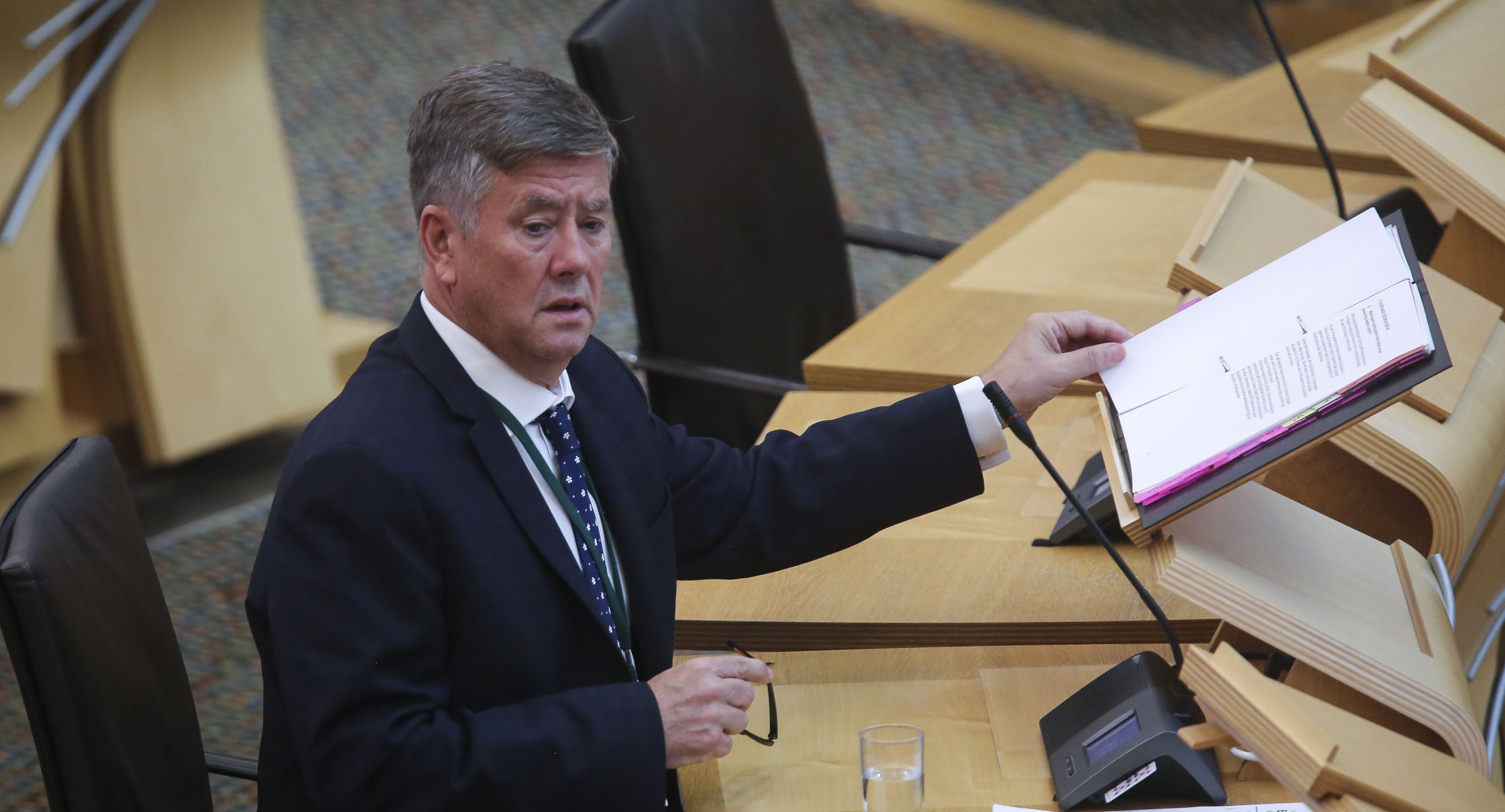
Miners who are pardoned for historic convictions linked to strikes should not receive compensation from the Scottish Government the Justice Secretary has said.
Keith Brown rebuffed calls for the Scottish Government to consider paying compensation as part of its plans to pardon miners convicted over strike action in the 1980s.
Challenged by former Scottish Labour leader, Richard Leonard, about whether compensation should be paid for the “injustices that were perpetrated on the miners, their communities, but also on their families”, Mr Brown said it was an issue for Westminster.
He stressed that there is “very little surviving evidence from police and court records” from the time, so the Scottish Government was proposing a collective pardon for all those who qualify.
We think the pardon is a reasonable measure to try and introduce some reconciliation in communities that were driven apart during the strike
Mr Brown argued that trying to introduce a compensation scheme could delay miners from being pardoned, was not within the Scottish Government’s powers and it was the UK Government who had responsibility for policing and the justice system at the time of the strikes.
The Scottish Government is planning to pardon living and dead coal workers convicted of certain offences during the miners’ strike of 1984-85 as they attempted to prevent colliery closures by Margaret Thatcher’s Conservative government.
Mr Brown said the collective pardon was to “recognise the disproportionate impact felt by those miners as a result of taking part in the strike, to restore dignity to them and to help the mining communities heal old wounds”.
Criteria for pardoning include convictions for offences such as breach of the peace, breaches of bail conditions or obstruction that were allegedly committed on the picket lines or demonstrations in support of miners, as well as while travelling to or from those gatherings.
Giving evidence to Holyrood’s Equalities Committee, Mr Brown told MSPs that pardons would not formally quash convictions or give people any further rights or entitlements and said: “I am clear that the Bill should not cast any doubt on decisions made by the judiciary at the team or seek to place blame on any individual or group of individuals.”

He added: “The conditions of the pardon recognise miners and police officers found themselves in extremely challenging situations where relationships came under unprecedented strain.
“Miners who took part in industrial action did so to protect their jobs, their way of life and the communities.
“Police officers were only exercising their duty to uphold the law and in circumstances and on a scale which had never encountered before.
“The pardon will apply both to living people and posthumously given the passage of time since the strike.”
Responding to SNP MSP Fulton MacGregor, who said he was “very much in favour of compensation” but now believed it shouldn’t be considered alongside the Bill to pardon miners, Mr Brown argued that there would have to be a “much more stringent process” than is proposed for pardoning people.
“It also runs the risk of the Bill moving away from its intended symbolic effect, into the territory of questioning decisions by the judiciary at the time,” Mr Brown said.
“Employment and industrial relations are reserved to the UK, so if the compensation is looking to compensate for loss of earnings, loss of pension, or loss of other rights, then the Scottish Government wasn’t party to this – it wasn’t in existence at the time.
“The issues that it touches on are unemployment issues, which are for the UK Government to consider.
“We have and will continue to press UK Government to hold a full public inquiry and that is the place where those kinds of issues should be discussed or addressed.
“But for us, we think the pardon is a reasonable measure to try and introduce some reconciliation in communities that were driven apart during the strike.”







